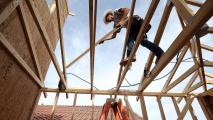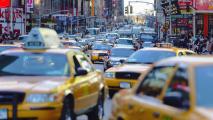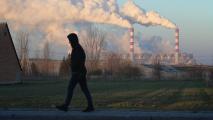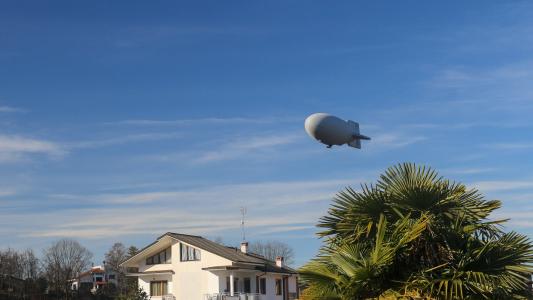EducationSuperHighway, a nonprofit formed to bring high-speed internet access to American classrooms, has announced a new campaign to get 18 million U.S. households online — and it plans to do so by deploying free WiFi networks in apartment buildings.
The challenge: High-speed internet access is hugely important to modern life — we rely on it for jobs, education, pandemic information, entertainment, and so much more. That means the people with fast internet have many advantages over those without it.
President Joe Biden has said he wants to close this digital divide, ensuring that “every single American has access to high-quality, affordable, high speed internet” — and money for that vision is available.
More than 80% of Americans who qualify for free or subsidized internet programs haven’t enrolled.
The $3.2 billion Emergency Broadband Benefit, which offers internet discounts based on need, went into effect in May, and the newly-passed infrastructure bill dedicates $42.5 billion to new broadband networks and $2.75 billion to increasing broadband adoption.
Those funds join a litany of other local, state, and federal programs meant to subsidize internet access for those with less means.
Yet there are still 28 million U.S. households without internet access, and two-thirds of those households live in places where the infrastructure to get online is already in place — residents just can’t afford to connect.
Free WiFi: On November 4, the EducationSuperHighway nonprofit launched No Home Left Offline, a campaign (backed by $16 million in private funding) to get those homes connected.
According to the nonprofit, 83% of Americans who qualify for free or subsidized internet programs haven’t enrolled because they don’t know about the programs, don’t trust them, or have hit other barriers, such as confusion at the enrollment process.
“Many low-income Americans struggle with the cost of long wait times, complex terms and conditions, language barriers, or navigating eligibility and enrollment information,” EducationSuperHighway CEO Evan Marwell told Hey SoCal.
“For older Americans and those who rent their homes, concerns about the installation process can also influence the decision to apply,” he continued.
This move alone would close 20% of the U.S.’s digital divide.
Working with community-based organizations to identify and enroll qualifying Americans will be one of No Home Left Offline’s main undertakings. The other will be deploying free WiFi networks in low-income apartment buildings.
This would be more straightforward than getting people to sign up for government programs, and enough people without internet access live in apartments that this move alone would close 20% of the U.S.’s digital divide.
“As the federal government puts up the money, we know that the biggest problem is adoption — getting people to sign up for these subsidy programs,” Marwell told Axios.
“There’s no adoption problems in hotel lobbies or libraries — everybody knows if you’ve got a device, look for the free WiFi network and you’re connected, right?” he continued. “So we said, ‘What if we could bring that approach to where people live?’”
The monthly cost is $200-500 per building, and landlords have happily footed the bill.
The model: EducationSuperHighway already has a blueprint for how its apartment WiFi program would work — in early 2020, it started working with the city of Oakland, CA, to bring free WiFi to residents of five low-income apartment buildings.
The monthly cost of the networks (which the campaign says have been widely adopted and praised by residents) is $200 to $500 per building, and landlords have footed the bill because they see the free WiFi as a way to retain existing tenants and entice new ones.
The pair now plans to expand the program to 127 apartment buildings in Oakland, using grant money to bring the monthly cost to landlords down to $100 per building.
Looking ahead: Some landlords might not be able to afford to pay for free WiFi (or want to pay for it), and Maxwell told Axios that deploying free WiFi in some older buildings may be challenging.
Still, the group is going to try, starting out with three to five cities before expanding to others in the future — and between that and its adoption programs, it hopes to dramatically narrow the digital divide in America.
“Before the pandemic, we talked a ton about the digital divide but we didn’t really do anything about it,” Marwell said. “The pandemic has changed it. If we don’t take advantage of this opportunity to really make progress now, I don’t know when we ever will.”
We’d love to hear from you! If you have a comment about this article or if you have a tip for a future Freethink story, please email us at [email protected].






